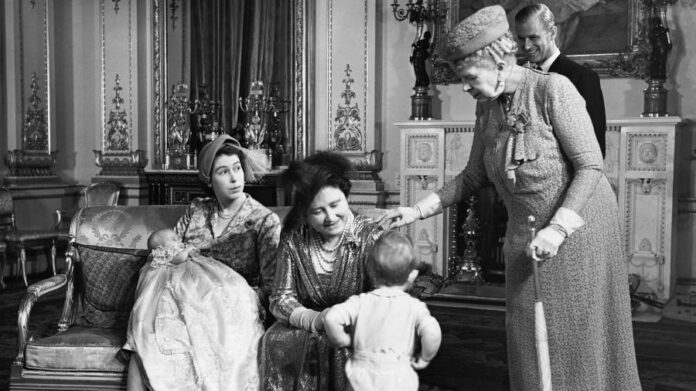If it had happened in the 19th century, I like to think the news would have been heralded by a trumpet. But it is 2022, and it was the UK’s top-selling tabloid, The Daily Mail, that made it front-page news. The newspaper reports that when Prince Charles becomes king, he will move into Buckingham Palace. The Cambridges will potentially move to Windsor, and Clarence House will be reassigned. A veritable merry-go-round.
We mere subjects will only look on in awe when the royal family’s removal vans grunt into action, marvelling not just at the handover of the seat of power but at the ability of one family to hold on to its historic property.
The average Joe would barely consider having a birthright to his mother’s palace. But with a boomerang generation, is it such an oddity?
The family home holds many of us in thrall. It is your first place of security and where your family legend is created. The upwardly mobile may look back with fondness at their parents’ house, while also thinking: thank goodness we don’t have to live there.
For the downwardly mobile, those without the same financial clout as their forebears, there’s a nostalgia attached to this lost legacy. I have a friend, now living deep in the suburbs, who passes a suave house near Hyde Park and mentions that it was once the family’s London residence — half with pride, half with a recognition of all that status and wealth dissipated over the generations.
A more modest — and fictional — house is lost in I Malavoglia or The House by the Medlar Tree by Giovanni Verga. In a coastal town in Sicily, it slips from the grip of the family through natural misfortunes (a fishing boat lost in a storm), human ones (taxes) and the general attrition of life. There’s a bittersweet ending as a grandson works to regain the house, but his grandfather never sees it again.
I read this as a teenager — with no mythical house in Sicily to recover — and have since walked through life observing others caught up in their family history. At its most brutal, it is siblings arguing over who gets it and who can afford it.
And that perhaps is why I was struck by that Daily Mail front page about the rotation of the royals and by the unreality of it. What was fantastical was that a family had retained all its territories against the ravages of time, that it still had it in its gift to dole out palaces. And that was in part because of legislation in their favour. And in a country with one of the highest inheritance or estate taxes.
Whereas in the US, estate tax applies only to the seriously wealthy, in Europe death duties are a means of shuffling the pack, cutting that umbilical cord to the old family house.
The UK and Ireland have among the highest flat-rate inheritance taxes, charged at 40 per cent and 33 per cent above certain thresholds — though tax reliefs apply. In Spain there’s one specific scenario of bequeathing something of value to an already rich person that is taxed at 81.6 per cent. The higher the value of the property, the steeper the taxes it attracts — and the more likely that inheritance tax planners will be called in to find ways to soften the blow.
The Queen is exempt from inheritance taxes when handing on to her heir, so the estimated value of Buckingham Palace at £3.6bn adds up to £1.4bn in taxes forgone. Though UK parents can pool their allowances to pass on a property worth up to £1mn to their children IHT free, the closest situation to the Queen’s that I can think of is council house tenancy, where you have the right to pass it on to an heir regardless of value. But, in the majority of cases, only once. And there are no footmen.
Then again, if the palace is — as Prince Charles so charmingly calls it — “the flat above the shop”, it is really the handing-down of the family firm.
There’s been a realignment of property in the past 100 years — the grand landowners losing their grip, the lure of the cities breaking up families, the increase in ownership and the rocketing house prices, the taxes — but there’s also been a return to the concept of a longstanding family home.
In the UK, a third of single people in their early thirties were living in the family home, according to a recent study by Loughborough University. They had eschewed the struggle to establish themselves in their own place in favour of something more comfortable. In the US, in 2020 during the pandemic, half of 18- to 29-year-olds were living with a parent, according to Pew Research. Even without a pandemic in 2019, it was still 47 per cent.
While the reasons for staying in the parental home might be both positive (assuredly good cups of tea) and negative (an inability to afford rent), it means that the tie to one home is deepening. And when it comes to a switch in ownership through the passing of parents, it is rather less likely to be lost if you are sitting on the sofa, immovable and determined to carry it on.
For those who’ve moved on and braved the property market, the idea of a return to the parental nest seems strange. But if already there, it may conversely seem rather like a more natural course of events.
Zadie Smith once said of the Queen that she appears in our minds as “distinctly lower middle class”. Perhaps Buckingham Palace is closer to a council house than we think.
Follow Joy @joy_lo_dico
Luke Edward Hall returns on February 26
Find out about our latest stories first — follow @FTProperty on Twitter or @ft_houseandhome on Instagram
Credit: Source link









